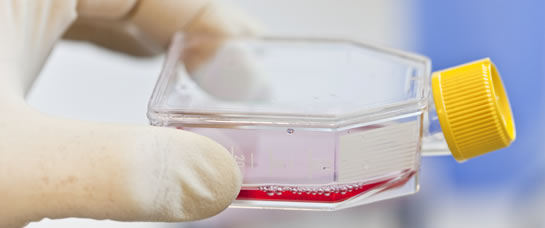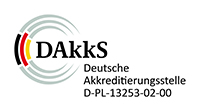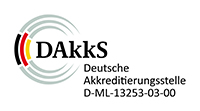AG Krönke
Dr. Alexander Gluschko (-84098 [Email protection active, please enable JavaScript.])
Daniela Grumme (-84099 [Email protection active, please enable JavaScript.])
Dr. Marc Herb (-84099 [Email protection active, please enable JavaScript.])
Katja Krönke-Wiegmann (-84096 [Email protection active, please enable JavaScript.])
Co-operation partners at IMMIH:
Dr. Alexander Klimka
Maria Gonzalez Rodriguez
Liza Maus
Research Topics:
Epitope-specific Staphylococcus aureus vaccine development
The development of a vaccine against Staphylococcus aureus remains an important unmet clinical need. So far, many vaccine candidates for S. aureus infections have shown promise through preclinical development in a range of animal models. However, those that have reached late-stage clinical testing have failed to demonstrate efficacy in human trials and occasionally aggravated the course of disease. Further progress in the design of vaccines against S. aureus with greater precision and efficacy is needed. Clearly, if one wants to develop an efficient Staphylococcus aureus vaccine you have to target different antigens or target antigens differently. Based on the delineation of protective and non-protective epitopes we developed an iterative concept of epitope-specific optimization of vaccine design.
Recently, we characterized coproporphyrinogen III oxidase (CgoX) as a S. aureus vaccine candidate, which is essential for bacterial heme synthesis. We could demonstrate that CgoX is a bona fide virulence trait of S. aureus that specifically targets and kills phagocytic host cells from inside. By metabolic default, staphylococcal CgoX produces coproporphyrin III in the cytoplasm, which cannot be metabolized by the host cell and accumulates to toxic concentrations. The access of CgoX to the host cell cytoplasm requires an intricate co-operative host-pathogen interplay. A humanized anti-CgoX D3 antibody neutralizes the cytotoxic activity of CgoX in phagocytic cells such as neutrophils and macrophages. Active immunization with the CgoX-D3 epitope elicited excellent immunoprotection in a murine model of S. aureus bacteremia. Together, the data provide a preclinical proof-of-principle for an epitope-based development of a S. aureus vaccine with great precision and outstanding efficacy and safety profile.
Current work aims at driving the vaccine project through the preclinical stage and early clinical phase I/IIa studies. This includes the definition of the molecular mode-of-action of anti-CgoX D3, GMP production of anti-CgoX D3, and a multicenter clinical trial phase I/IIa to demonstrate safety, pharmacokinetics and efficacy of anti-CgoX D3 in healthy volunteers and patients with S. aureus blood stream infection.
Our vaccine project is partially funded by the German Center of Infection Research (Deutsches Zentrum für Infektionsforschung (DZIF)) and embedded in the Thematic Translational Unit (TTU) Healthcare-Associated and Antibiotic-Resistant Bacterial Infections (HAARBI).
Funding: DZIF, DFG and Federal State North-Rhine Westfalia
A) S. aureus-related
Klimka A., Mertins S., Nicolai A.K., Rummler L.M., Higgins P.G., Günther S.D., Tosetti B., Krut O., Krönke M. Epitope-specific Immunity against Staphylococcus aureus Coproporphyrinogen III Oxidase. NPJ Vaccines. doi 10.1038. 2021
Tosetti B, Ward B, Grumme D, Herb M, Schramm M, Utermöhlen O, Heukamp LC, Krönke M, Krut O. NOX2 deficiency permits sustained survival of S. aureus in macrophages and contributes to severity of infection. Front Immunol. Doi: 10.3389/fimm633629. 2021.
Klimka A, Michels L, Glowalla E, Tosetti B, Krönke M, Krut O. Montanide ISA 71 VG is advantageous to Freund's adjuvant in immunization against S. aureus infection of mice. Scand J Immunol. 81:291. 2015
Glowalla E, Tosetti B, Krönke M, Krut O. Proteomics-based identification of anchorless cell wall proteins as vaccine candidates against Staphylococcus aureus. Infect Immun. 77: 2719. 2009
Schnaith A, Kashkar H, Leggio SA, Addicks K, Krönke M, Krut O. Staphylococcus aureus subvert autophagy for induction of caspase-independent host cell death. J Biol Chem. 282: 2695. 2007
Palka-Santini M, Pützfeld S, Cleven BE, Krönke M, Krut O. Rapid identification, virulence analysis and resistance profiling of Staphylococcus aureus by gene segment-based DNA microarrays: application to blood culture post-processing. J Microbiol Methods. 68:468. 2007
Klein M, Krönke M, Krut O. Expression of lysostaphin in HeLa cells protects from host cell killing by intracellular Staphylococcus aureus. Med Microb Immun 195: 159. 2006
Cleven BE, Palka-Santini M, Gielen J, Meembor S, Krönke M. Identification and characterization of bacterial pathogens causing bloodstream infections by DNA microarray. J Clin Microbiol. 44: 2389. 2006
Koszczol C, Bernardo K, Krönke M. Subinhibitory quinupristin/dalfopristin attenuates virulence of Staphylococcus aureus. J Antimicrob Chem. 58: 564. 2006
Bernardo K, Pakulat N, Fleer S, Schnaith, Utermöhlen O, Krut O, Müller S, Krönke M. Subinhibitory concentrations of linezolid reduce virulence factor expression by S. aureus. Antimicrob. Agents Chemother. 48: 546. 2004
Krut O, Sommer H, Krönke M. Antibiotic-induced persistence of cytotoxic Staphylococcus aureus in non-phaogocytic cells. J. Antimicrob. Chemother. 53:167. 2004.
Krut O, Utermöhlen O, Schlossherr X, Krönke M. Strain-specific association of cytotoxic activity and virulence of clinical Staphylococcus aureus isolates. Infect. Immun. 71:2716. 2003
Bernardo K, Fleer S, Pakulat N, Krut O, Hünger F, Krönke M. Identification of Staphylococcus aureus exotoxins by combined sodium dodecyl sulfate gel electrophoresis and matrix-assisted laser desorption/ ionization-time of flight mass spectrometry. Proteomics 2:740. 2002
Bernardo K, Pakulat N, Macht M, Krut O, Seifert H, Fleer S, Hünger F, Krönke M. Identification and discrimination of Staphylococcus aureus strains using matrix-assisted laserdesorption/ionization-time of flight mass. Proteomics 2:747. 2002
B) Host – microbe interactions & cell death
Gluschko A, Farid A, Herb M, Grumme D, Krönke M, Schramm M. Macrophages target Listeria monocytogenes by two discrete non-canonical autophagy pathways. Autophagy. doi: 10.1080/15548627.2021.1969765. 2021
Günther SD, Fritsch M, Seeger JM, Schiffmann LM, Snipas SJ, Coutelle M, Kufer TA, Higgins PG, Hornung V, Bernardini ML, Höning S, Krönke M, Salvesen GS, Kashkar H. Cytosolic Gram-negative bacteria prevent apoptosis by inhibition of effector caspases through lipopolysaccharide. Nat. Microbiol. 5: 354. 2020
Fritsch M, Günther SD, Schwarzer R, Albert MC, Schorn F, Werthenbach JP, Schiffmann LM, Stair N, Stocks H, Seeger JM, Lamkanfi M, Krönke M, Pasparakis M, Kashkar H. Caspase-8 is the molecular switch for apoptosis, necroptosis and pyroptosis. Nature. 575: 683. 2019
Herb M, Gluschko A, Wiegmann K, Farid A, Wolf A, Utermöhlen O, Krut O, Krönke M., Schramm M. Mitochondrial reactive oxygen species regulate pro-inflammatory signaling vie disulfide linkage of NEMO. Sci Signaling 12: doi: 10.1126/scisignal.aar5926. 2019
Herb M, Farid A, Gluschko A, Krönke M, Schramm M. Highly Efficient Transfection of Primary Macrophages with In Vitro Transcribed mRNA. J. Vis Exp. 9 doi: 10.379160143. 2019
Gluschko A, Herb M, Wiegmann K, Krut O, Neiss WF, Utermöhlen O, Krönke M, Schramm M. The β2 Integrin Mac-1 Induces Protective LC3-Associated Phagocytosis of Listeria monocytogenes. Cell Host Microbe. 23:324. 2018
Hos NJ, Ganesan R, Gutiérrez S, Hos D, Klimek J, Abdullah Z, Krönke M, Robinson N. Type I interferon enhances necroptosis of Salmonella Typhimurium-infected macrophages by impairing antioxidative stress responses. J Cell Biol. 16:4107. 2017
Ganesan R, Hos NJ, Gutierrez S, Fischer J, Stepek JM, Daglidu E, Krönke M, Robinson N. Salmonella Typhimurium disrupts Sirt1/AMPK checkpoint control of mTOR to impair autophagy. PLoS Pathog. e1006227. 2017
Schramm M, Wiegmann K, Schramm S, Gluschko A, Herb M, Utermöhlen O, Krönke M. Riboflavin (vitamin B2) deficiency impairs NADPH oxidase 2 (Nox2) priming and defense against Listeria monocytogenes. Eur J Immunol. 44: 728. 2014
Yazdanpanah B, Wiegmann K, Tchikov V, Krut O, Pongratz C, Schramm M, Kleinridders A, Wunderlich T, Kashkar H, Utermöhlen O, Brüning JC, Schütze S, Krönke M. Riboflavin kinase couples TNF receptor 1 to NADPH oxidase. Nature. 460: 1159. 2009
Theisen DM, Pongratz C, Wiegmann K, Rivero F, Krut O, Krönke M. Trageting of HIV-1 Tat traffic and function by transduction-competent single chain antibodies. Vaccine. 24: 3127. 2006




